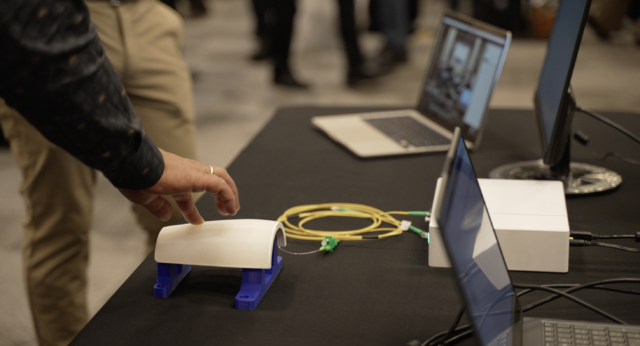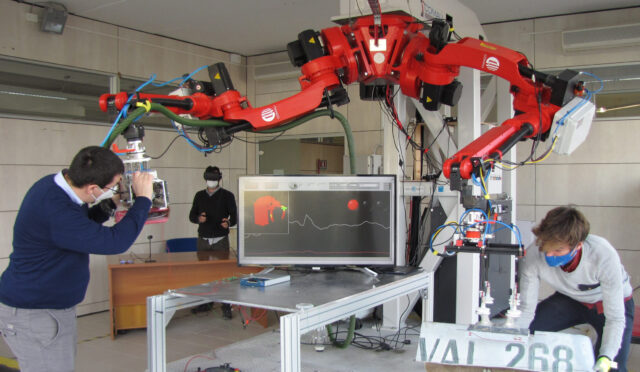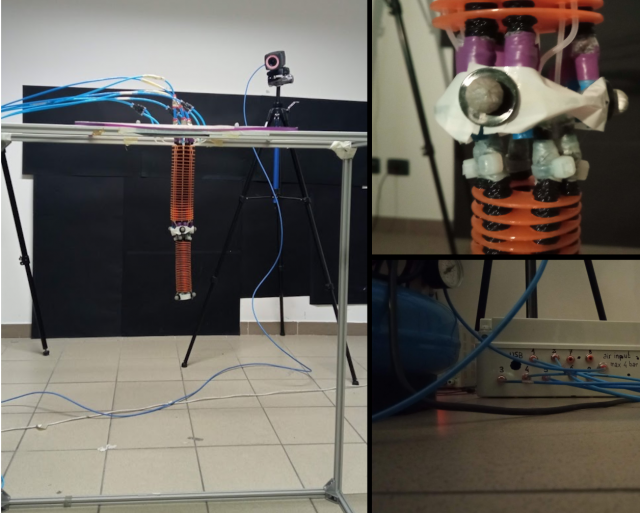Optimising the way humans and robots interact is fundamental to their usage and effectiveness in nuclear environments. In all research areas of the RAIN Hub feedback and discussion with industry stakeholders is invaluable. This is our first session focusing on Human-Robot Interaction (HRI).
Over two days (Monday 28th and Tuesday 29th September) we will host 7 separate online sessions, each diving into 1 of 7 research themes. The outcomes of these sessions will be summarised in a panel discussion on Thursday 1st October, 9:30 – 10:30.
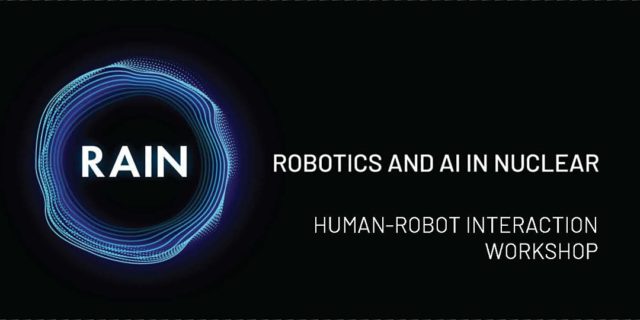
The event aims to:
- Strengthen existing, and create new, links between industry and academia
- Create a HRI network for the UK’s Nuclear industry
- Talk to industry about the current ongoing research across UK universities
- Improve our understanding of the current industrial challenges, informing future research
Splitting this workshop into shorter sessions will allow people to attend the areas of most interest to them. We will set the agenda based on the availability of early respondents, so please do sign up.
Each research theme session will last 1 hour and cover a few short presentations on the current work within that field, before an interactive discussion.
Research themes:
- Virtual Reality & Augmented Reality -This theme will discuss data presentation and teleoperation controls using virtual or augmented reality. How to present gathered data from robot sensors such that it can be intuitively understood and operated upon is being examined. Further, this theme looks at how to provide intuitive teleoperation controls that make use of the capabilities of VR/AR.
- Teleoperation – In this theme, we will discuss how to improve teleoperation systems for remote manipulation of hazardous objects in challenging environments from a comprehensive perspective. During tele-manipulation, the master device can increase the task load on the human operator while the limited sensory information on the remote environment increases the chance of failures. By identifying the challenges of the manipulation, better teleoperators can be introduced for improving the performance and safety.
- Haptics – We examine how to best design and optimize remote telepresence systems which are controlled by an operator based on information from vision and touch. The core principle underlying work in the theme is that with a human user in the control loop, it is essential to understand how the brain processes sensory information in order to design efficient and effective telepresence systems which are transparent to the user.
- Shared Control – This theme will discuss levels of autonomy specifically for hazardous shared control, where human-in-the-loop is critical for safety consideration. How can we improve autonomy and reduce operator load, without compromising the quality of the task operation and maintaining industry safety standards.
- Communication & Perception – We will look at methods of human communication with robotic systems. These approaches usually take inspiration from human embodiment and relies in many ways on methods of human-human communication. Hence, we will look at fundamentals of human-human communication such as gaze, gesture and speech and how these can be used in human-robot interaction.
- Human Factors – This theme will explore human factors concerns in rapidly changing modern industrial contexts. Here humans find themselves working more frequently with robots and autonomous systems (RAS). This has led to previously unconsidered key issues and risks. – How do we prepare for and mitigate these risks? – How will working practices and environments change as new technologies are introduced? – How can standard human factors’ assessment protocols be updated to comprehensively address new issues arising from RAS in the workplace?
- Trustworthiness – This theme will address meaningful pathways to trustworthy robotics and autonomous systems (RAS). We will discuss what is meant by a ‘trustworthy system’ given the many different definitions of the term, but also explore practical issues around what it means to be able to trust RAS technology:- How can we make transparency and accountability accessible to RAS users, so that users can trust the technology?- How do we address broader concerns and uncertainty about RAS, which impact the ways individuals interact with technology, e.g. job uncertainty, consequences of mistakes, and unclear chains of accountability?- If so many users have differing mental models of what RAS is, how can we measure what is being trusted?
Click for registration: https://www.eventbrite.co.uk/e/human-robot-interaction-for-nuclear-workshop-tickets-115138644786


